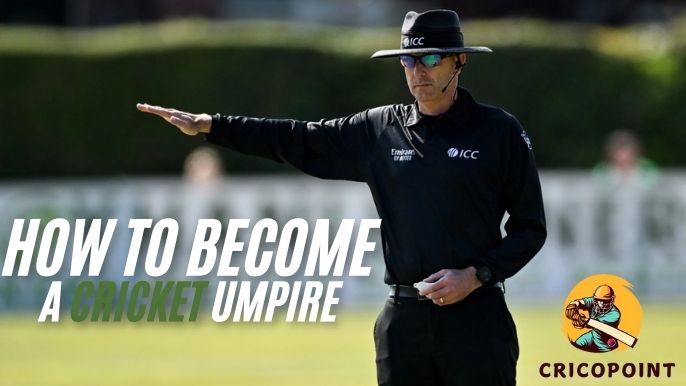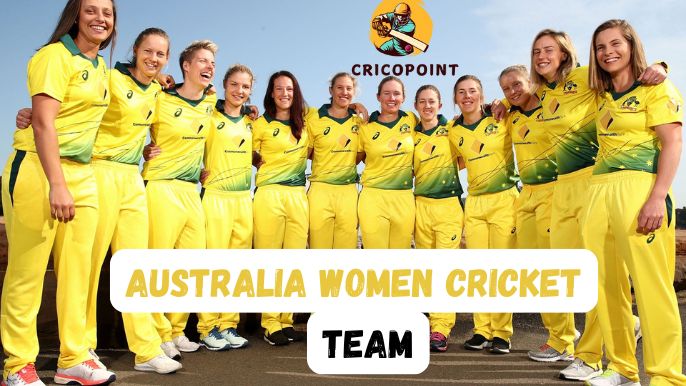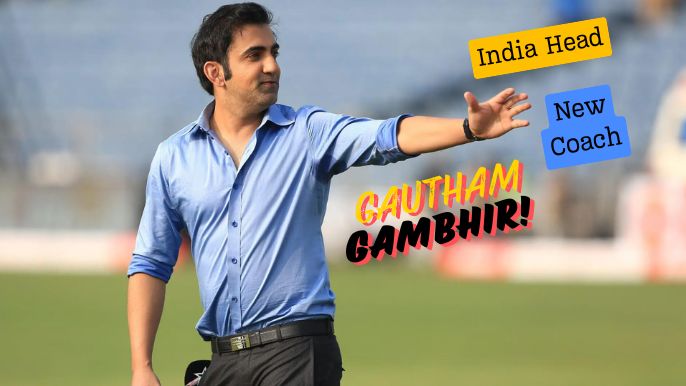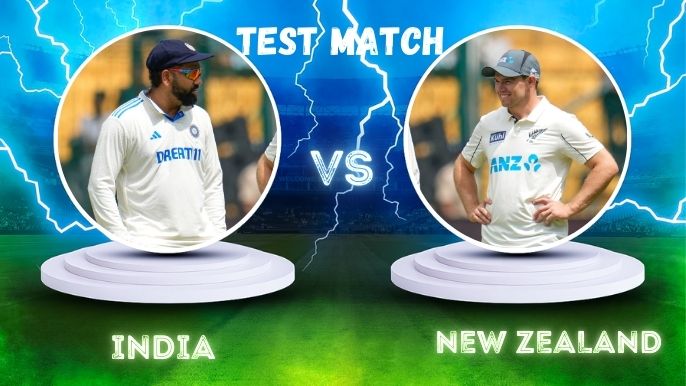The umpire on the cricket field is from none of the teams and hence is neutral and impartial in decision making. The decision and other decision-based responsibilities are held by the umpire who holds the authority to do so.
The number of umpires varies for example, the test matches have four umpires. The International Cricket Council (ICC) consists of three panels of Umpires and they are the Elite Panel, the larger International Panel, and the last but not the least Development Panel of ICC Umpires.
Now in this article, we will help those who are interested in becoming an umpire or are aspiring umpires. Now being an Umpire is not at all easy, one needs to have a very keen and deep knowledge of cricket. If one has to become an umpire one should have to undergo training programs, and gain experience, and attain different levels of qualifications. But it would be best if you did not worry as we are here to help you with the guidance to become an umpire for cricket.
Role of an Umpire
- Umpires are entrusted to ensure that there is fair gameplay between the teams and decisions are made by the umpire as per the rules already set from cricket laws.
- The umpires should have knowledge of Cricket laws and code of conduct with proper understanding and implementation power at its best.
Eligibility Criteria and Basic Requirements
Age Limit – In order to officially start your career as an umpire you need to be at least 18 years old.
Educational Criteria – As for becoming an umpire there is no definite educational requirement but if you want to be an umpire you should excel in communication skills. This means you must be able to communicate skilfully.
Steps to Become an Umpire
Joining local cricket association nearby – The first step for becoming an umpire is to join local or state cricket association. Now after joining these associations, they will host umpiring courses and various matches which you have the opportunity to take part in.
These training programs will allow you to have practical knowledge and experience in Umpiring, through these matches one gains certificates and exam results as proof of your experience.
Umpiring courses –
Here by umpiring courses, we mean the ones that are provided by official departments for the same which are, the England and Wales Cricket Board (ECP), Board of Control for Cricket in India (BCCI), Cricket Australia (CA), and a few other.
While training as an umpire the aspirant gets trained and acknowledged about the Cricket Laws, Game Management, Signal Communication, Decision making while being under high pressure, and also the use of technology like DRS.
Levels of Umpiring Courses –
There are two main levels and then above 2 there are more but here we will be explaining the basic ones.
Level 1 – The level 1 Umpiring course is for real beginners who are very new to this field and know almost nothing about umpiring. This includes basic information like cricket laws.
Level 2 – The level 2 Umpiring course comes after the aspirant has all the information about cricket rules and has also gained a bit of experience. After reaching this level, you will be moved to level 2 of the umpiring course, where you will be trained while focusing on advanced scenarios, and also dealing with the higher level of matches and competitions.
Experience
After the course completion comes the experience time, here you need to gain experience and this will happen after taking part in local matches around you. The more you take part in these local matches the more you will gain experience from them.
It is not just about the eligibility criteria required for the official recruitment but also about boosting and building up self-confidence.
While you are in the training period and claiming the course try to learn from your seniors and take their precious feedback to improve yourself.
National and International Certificate –
Now once you are done with training and experience claiming in this field, you now need to have a certificate. These certificates which provide you with an official national body like BCCI, ECB, and CA which you can join after completing your experience.
If you plan on moving on with international matches, you need a certificate from the International Cricket Council. This certificate from ICC will be provided to you only when you are recommended by your national board group. This will be done by the elite umpires who are there in the panel of the National group.
Key Skill Features that need to be Mastered by You –
Handling high pressure – This is really very important point and a key feature for an umpire to master. Umpires have to make absolutely correct decisions under seriously high pressure of various things.
Healthy Communication Skills – Here as an umpire you must excel in your communication skills as they are necessary as you have to communicate a lot during the match.
Overall Fitness – As an umpire, you must excel in the field of mental as well as physical health. In the matches during the long formats, one has to be physically really healthy. Now mental health is necessary as you have to focus on each and every thing that goes on in the field.
At last, I would like to add that since you have chosen this dream, you need to be very dedicated and full focused on the aim. You will have to keep working really very hard but still have a load of patience.
FAQs –
Ques – How much does a cricket umpire earn?
Ans – An umpire usually earns around 1.67 crores per annum.
Ques – What is the fee for an IPL match?
Ans – 7.5 lakhs per outing is the estimated fee for Aan IPL.
Ques – Can 11-year-olds umpire?
Ans – No one with 11 years of age cannot umpire in Official matches.
Ques – What is the salary of a BCCI Level 1 umpire?
Ans – They make around 30000 to 40000 per month.
Ques – What is the age limit for BCCI umpires?
Ans – There is no age limit for BCCI umpires.
Ques – Who is the youngest umpire in India?
Ans – Nitin Narendra Menon was the youngest Umpire in India.




